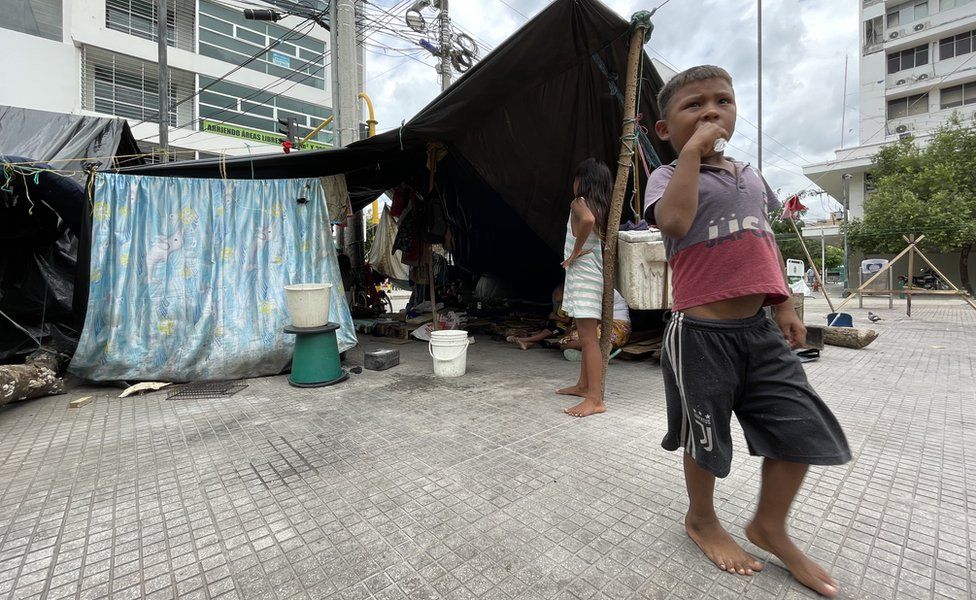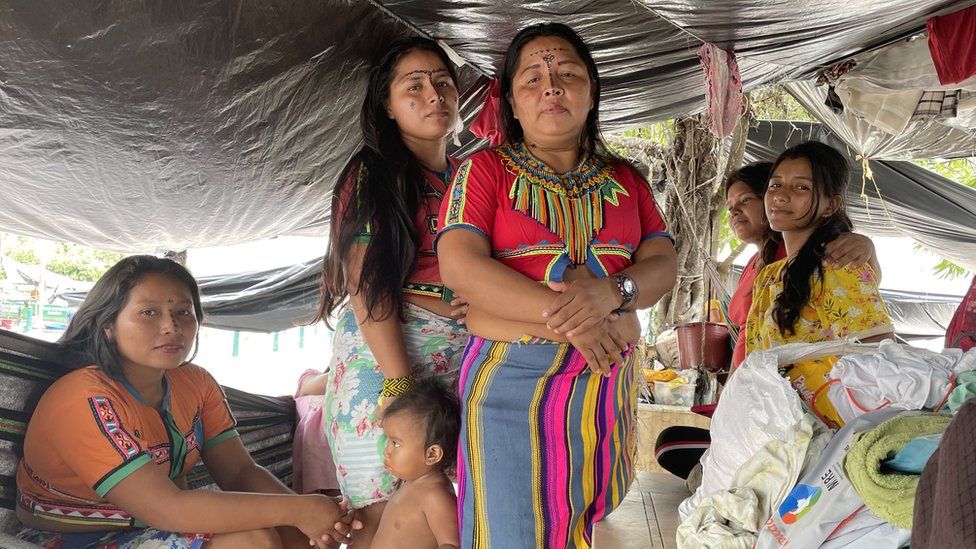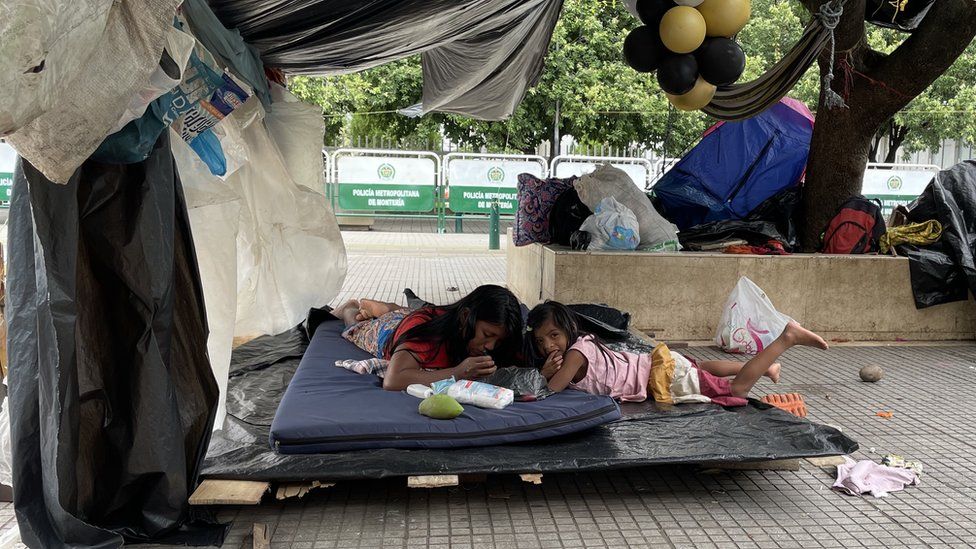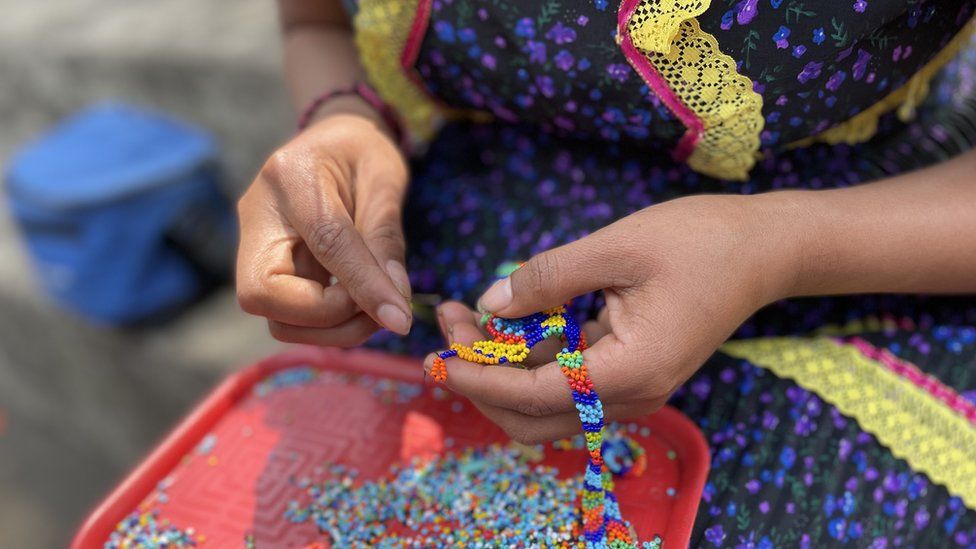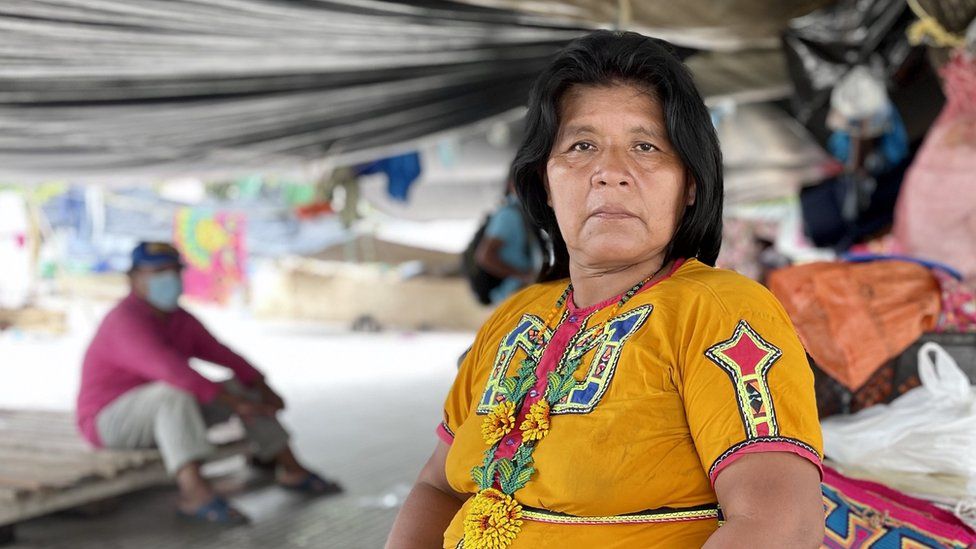

General Raisi (L) has been campaigning to become Interpol president, despite allegations of torture against him (AFP/Ozan KOSE)
Remi BANET
Tue, November 23, 2021
Interpol may on Thursday find itself with a new president, an Emirati general accused of torture, adding to concerns the global police agency risks being co-opted by repressive regimes.
General Ahmed Nasser Al-Raisi, head of the United Arab Emirates' security forces, has been seeking election to the largely ceremonial and voluntary role since last year.
That follows years of generous funding for the Lyon, France-based body by the Emirati regime and accusations that Interpol's system of so-called "red notices" for wanted suspects has been abused to persecute political dissidents.

Only the Czech Republic's Sarka Havrankova -- a veteran officer overseeing the country's international cooperation in police matters -- is standing against Raisi in elections at this year's Interpol General Assembly in Turkey for the four-year post.
"The election of General Al Raisi would undermine the mission and reputation of Interpol and severely affect the ability of the organisation to carry out its mission effectively," three European Parliament members wrote in a letter dated November 11 to European Commission President Ursula Von der Leyen.
While the position of president is symbolic, endorsement of the general by the group's 195 members "would send a signal to other authoritarian governments" that using Interpol to pursue critics abroad "is okay", said Edward Lemon, an assistant professor specialising in transnational repression at Texas A&M University.
- 'Torture and barbarism' -
In October 2020, 19 NGOs, including Human Rights Watch, expressed concern about the possible choice of Raisi, who they described as "part of a security apparatus that continues to systematically target peaceful critics".
Complaints of "torture" were filed against the general in recent months in France and Turkey, which is hosting the general assembly in Istanbul this week.
One of the complainants, British national Matthew Hedges, said he was detained and tortured between May and November 2018 in the United Arab Emirates, after he was arrested on false charges of espionage during a study trip.
In another complaint, lawyers for the Gulf Centre for Human Rights accuse the Emirati general of "acts of torture and barbarism" committed against government critic Ahmed Mansoor.
Mansoor has been detained since 2017 in a four-square-metre (43-square-foot) cell "without a mattress or protection against the cold" and "without access to a doctor, hygiene, water and sanitary facilities", the lawyers said.
These complaints have not resulted in any formal proceedings against Raisi.
Interpol Secretary General Jurgen Stock, who handles day-to-day management of the organisation, told journalists he was "aware of these accusations, which are currently an issue between the parties involved".
"It will be on Thursday the role of the member countries of Interpol to decide" on whether Raisi should get the role, said Stock, who was given a second five-year term in 2019.
South Korean Kim Jong-yang has been president of the organisation since the 2018 arrest of his predecessor Meng Hongwei in China, where he had served as a vice minister of public security.
"The questionable reputation of Raisi... whether deserved or not, is an important factor for the organisation," said Mathieu Deflem, sociology professor at the University of South Carolina and author of books on Interpol.
A report by a former British director of public prosecutions, Sir David Calvert-Smith, that was published in March concluded that the UAE hijacked the system of red notices -- international wanted notices -- to put pressure on opponents.

- 'Stymie reform' -
If he is elected on Thursday, Raisi would "likely work with like-minded governments to stymie reform efforts pushing for greater transparency in Interpol", Texas A&M's Lemon said.
Lemon said the UAE donated $54 million (48 million euros) to Interpol in 2017 -- an amount almost equivalent to the required contributions of all the organisation's 195 member countries. This amounted to $68 million (60 million euros) in 2020.
The UAE gave or had pledged to Interpol around 10 million euros in 2019, approximately seven percent of its total annual budget.
"Such funding reduces other members' ability to influence the organisation," Lemon said.
The Emirates hosted the general assembly in 2018 and wanted to host it again in 2020, he said.
That meeting was postponed due to Covid, and went to Turkey instead -- though the government of Recep Tayyip Erdogan also faces accusations of mass detentions, abuse of trial process and repression.
Czech candidate Havrankova also believes these "very serious allegations" might prevent her rival's election.
"I'm just trying to bring the alternative," she said.
"It's for the delegations to decide how they want their organisation to be led."
rba/ach/raz/fo/pbr
- https://www.jstor.org/stable/260577 · PDF file
The International Anti-Anarchist Conference of 1898 and the Origins of Interpol The International Anti-Anarchist Conference which met in Rome in 1898 is one of those events that has slipped into virtual historical limbo. Apparently baffled by the secrecy that enshrouded the ses-sions and final resolutions of the Rome meeting, one historian has
Interpol: Torture Accusations against UAE Candidate
JUSTICE, 22 Nov 2021
Kersten Knipp | Deutsche Welle - TRANSCEND Media Service
17 Nov 2021 – The new head of Interpol will be elected next week. However, one of the candidates — Major General Ahmed Naser Al-Raisi from the United Arab Emirates — has been accused of torture.
Politicians, human rights organisations and former foreign detainees are concerned about a candidate from the United Arab Emirates (UAE) who is running for presidency of the International Police Organization (Interpol).
If elected, Major General Ahmed Naser Al-Raisi would succeed Kim Jong-yang of South Korea, who has been in office since 2018.
Controversial candidate: Major General Al-Raisi, pictured here in 2018 on Interpol’s Twitter account, following his election as Asia representative to the organization’s executive committee
There is also concern here in Germany. Earlier this week, three German politicians, Kai Gehring (the Greens), Peter Heidt (Free Democrats) and Frank Schwabe (Social Democrats) published a joint statement highlighting their fear for serious consequences for Interpol’s legal culture.
“Given the devastating human rights record of the United Arab Emirates (UAE), the appointment of Mr Al-Raisi as president would be in blatant contradiction to the Universal Declaration of Human Rights and the organization’s mission,” they said, adding: “If nothing else, it would jeopardize Interpol’s international reputation.”
‘Directly involved in multiple cases’
The German MPs accuse the major of being “directly involved in human rights violations in a number of high-profile cases.”
They also see the major, who was appointed Emirati director general for “central operations” in 2005 and inspector general of the Interior Ministry in 2015, as an active representative of an authoritarian system.
“As a UAE state representative, Mr Al-Raisi is part of a security apparatus that systematically targets peaceful dissenters,” the three MPs wrote.
The statement further outlines that civil and political rights are severely restricted in the UAE and that dissidents, journalists and human rights defenders are subject to harsh reprisals, including enforced disappearances, torture, and arbitrary detentions under draconian anti-terror laws.
Those three German politicians are not the only ones voicing their concerns.
In late October, Human Rights Watch — together with 18 other human rights groups — had already expressed concerns about Al-Raisi’s candidacy.
In France, 35 French members of parliament called on President Emmanuel Macron to oppose Al-Raisi’s candidacy.
UAE rejects allegations
The UAE categorically rejects such accusations. “As a current member of Interpol’s Executive Committee, Major General Al-Raisi is a distinguished professional with a 40-year track record in community and national policing,” the UAE embassy in Germany wrote in a statement to DW.
The statement further says that “as the President of Interpol, he will remain committed to protecting people, making communities safer and providing global law enforcement the latest tools in the fight against sophisticated criminal networks.”
It continues by highlighting that the UAE is proud to be one of the safest countries in the world.
“The UAE also is the most progressive force for positive change in the world’s most difficult region. As an elected member of the UN Human Rights Council, the UAE prioritizes the protection of human rights at home and abroad, including the promotion of women’s empowerment, religious co-existence, and acceptance of people of determination.”
Complaints by former detainees
However, not only politicians but also formerly detained foreigners in the UAE are worried about the candidate.
In May 2018, the British political scientist and security expert Matthew Hedges was arrested at Dubai airport after a two-week research stay during which he had conducted several interviews for his doctoral thesis.
The authorities accused him of spying for the UK.
In November that year, he was sentenced to life in prison, however, he was pardoned a few days later.
In May 2021, Hedges brought charges against four representatives of the Emirati authorities — including Major General Al-Raisi — who were allegedly linked to his arrest and the conditions of his detention.
He was physically intimidated and threatened, Hedges said in an interview on the phone with DW.
“I was told that nobody knew where I was and that I had no choice,” he continued and added that guards had also kept him from sleeping.
He had suffered panic attacks, after which his guards had forced him to drink a narcotic cocktail. Eventually, he even had suicidal thoughts. “All this was not just unacceptable behavior, but systematic abuse of power,” Hedges told DW.
The mere idea that Major General Al-Raisi could now be elected president of Interpol is inconceivable to Hedges. “He is responsible for torture. How can such a man become one of the world’s leading police officers? It’s ridiculous.”
A second British citizen, Ali Issa Ahmad, told DW on the phone about his time in detention in the UAE.
Ahmad had traveled to the UAE in January 2019 for the Asian Football Championship.
During the Qatar vs Iraq match on January 22, he had put on a Qatari team shirt. However, at that time, the Emirate was effectively considered a political enemy of the UAE following a former boycott initiated by Saudi Arabia. Employees of the UAE security authorities took the shirt from Ahmad.
Claiming that he didn’t know it was forbidden, Ahmad wore another Qatari team T-shirt the next day on the beach, and was arrested. Ahmad reports in an interview with DW that he was beaten, and at times, a plastic bag was pulled over his head. During his detention, he was also kept from sleeping.
While this cannot be verified independently, it is consistent with similar reports from international human rights groups.
Ahmad has filed a complaint against six representatives of the UAE security authorities — among them Major General Ahmed Naser al-Raisi.
“When I heard that he could possibly become president of Interpol, I was shocked,” Ahmad said.
Abuse of red notices?
The German Green MP Kai Gehring is convinced that “a repressive state that disregards elementary human rights and the principles of the rule of law in such a way should not be given such influence over the most important international police organization.”
He is particularly critical of the possible use of so-called red notices to locate individuals wanted for serious crimes by the UAE security apparatus. These could be misused to have political opponents arrested, Gehring fears.
Among those is Ahmed Mansoor, an activist and blogger who has been imprisoned in the UAE since 2017. Both Amnesty International and Human Rights Watch accuse the UAE of treating Mansoor in violation of human rights standards.
As a result, the Gulf Center for Human Rights has charged Al-Raisi in a French court. It accuses him of being responsible for the torture of Ahmed Mansoor.
And yet, the UAE’s embassy argues that they have been a proud and committed member of Interpol since 1973.
“The country has a distinguished track record working in partnership with fellow members to disrupt criminal networks and bring fugitives to justice,” the embassy wrote in a statement addressed to DW.
The statement further highlights that “between 2018 and 2021, 516 lawbreakers wanted by 58 countries were arrested and handed over by the UAE for crimes relating to criminal association, theft, fraud, money laundering, terrorism, and other crimes.”
However, human rights issues weren’t mentioned in this context at all.
__________________________________________________
This article was adapted from German by Jennifer Holleis.
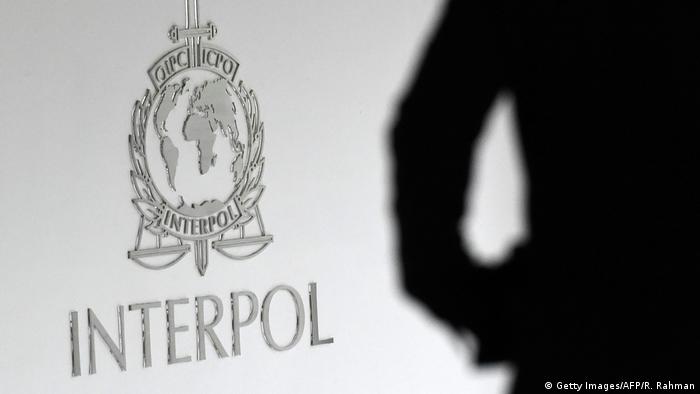









 © Ryad KRAMDI Algeria has for decades subsidised everything from bread and milk to fuel and electricity
© Ryad KRAMDI Algeria has for decades subsidised everything from bread and milk to fuel and electricity













